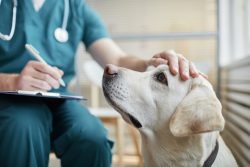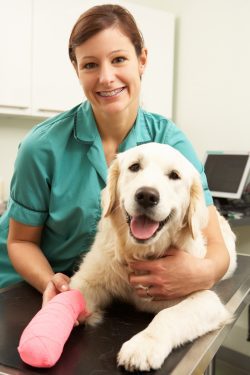Common Infection Prevention Techniques At Veterinary Medical Hospitals In Greer SC
Infection prevention techniques are paramount in veterinary hospitals to ensure the safety and wellness of pets and their human companions. Modern veterinary practices prioritize the well-being of both patients and their human companions by implementing rigorous infection prevention techniques. Veterinary medical hospitals in Greer SC utilize various techniques to uphold the highest standards of hygiene and protect the health of all pets in their care. Read on to explore the fundamental techniques used to keep pets safe and healthy during their visits to animal hospitals.
Strict Hygiene Protocols
We maintain strict hygiene protocols at our veterinary clinics to reduce the risk of infections. Some of our key protocols include the following.
Frequent hand washing.
The use of hand sanitizers.
Proper disinfection of surfaces and equipment.
Every member of our team is trained in infection control practices to ensure that all areas. They learn how to clean and sanitize examination rooms and surgical suites. Areas where pets and visitors spend time are frequently cleaned and disinfected to minimize the risk of contamination. We also use personal protective equipment, such as gloves and masks, to prevent the spread of infections.
Isolation of Contagious Cases
Our animal clinics have separate isolation wards designated for contagious cases. This isolation helps prevent the spread of infectious diseases among other patients and reduces the risk to pets and staff members. Pets with suspected or confirmed contagious illnesses are isolated until they are no longer a threat to others. Additionally, local veterinarians ensure that all animals, particularly those with respiratory symptoms or gastrointestinal issues, are isolated from the general population.
Rigorous Sterilization and Sanitizing Practices
Sterilization is vital in infection prevention in surgical wards and operating theaters. We strictly adhere to strict sterilization practices for surgical instruments and equipment. Sterilization methods may include autoclaving, which uses high-pressure steam to kill microorganisms, or chemical sterilization for items that cannot withstand the high heat of autoclave. Surfaces and materials in surgery suites are also rigorously sterilized. Sanitizing extends to items like bedding and blankets, which are washed and disinfected regularly. Additionally, we have separate equipment for contagious cases, which are carefully disinfected and kept isolated from equipment used for other patients.
Proper Waste Management
Proper waste management is crucial in preventing infection at veterinary hospitals. This includes safely disposing of biohazardous materials, such as tissues removed during surgery or items contaminated with bodily fluids. At our animal clinics in Greer, SC, we follow strict guidelines for the disposal of these materials, ensuring that they are disposed of safely to prevent the spread of infections. Also, we disposed of general waste, such as used needles and sharps, using specialized containers designed to prevent accidental needle pricks and contamination. Proper waste management helps protect both hospital staff and the environment.




